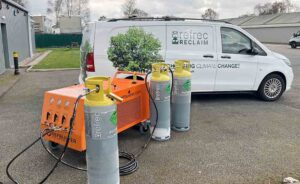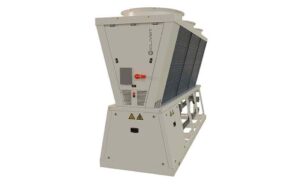EPEE calls for green policy enforcement
28th February 2014 BELGIUM: EPEE has called on the EU to create a European enforcement authority for laws such as ecodesign and energy labelling.
BELGIUM: EPEE has called on the EU to create a European enforcement authority for laws such as ecodesign and energy labelling.
Speaking at a debate organised by EPEE representing the heating and cooling industry in Brussels last week, EPEE’s director general Andrea Voigt stated that market surveillance was one of the top priorities of the association as it ensures a level playing field for all manufacturers in Europe and contributes to guaranteeing the R&D and design investments made by the industry. She maintained that market surveillance would be a cornerstone of the success of the Ecodesign and energy labelling directives.
The debate was held on the fringes of an international product policy conference organised by the European Commission.
Paul Hodson, the European Commission’s head of unit for energy efficiency confirmed that enforcement is one of four priorities for the European Commission in the context of product policy and efficiency. The other three are: energy efficiency in a 2030 energy and climate package, a revision of the existing energy label and potentially ecodesign laws, and a greater international focus with a view to minimising the burden on European business of different standards around the world.
“Poor market surveillance and enforcement are a huge problem in Europe. Only five member states are “active” in enforcement and 10-25% of products are estimated to be non-compliant with ecodesign and energy labelling laws, according to a report by consultancy Ecofys. Yet these laws should deliver at least one-third of the EU’s projected energy saving to 2020, compared to business-as-usual,” said Hodson.
Tamara Janke, from the German Environment, Climate Protection and the Energy Sector of Baden-Wuerttemberg, explained that cost was a major barrier to enforcement. For example, a testing lab for vacuum cleaners can cost €400,000 and each test thereafter another €4,000. Testing requirements should be designed more with market surveillance in mind, she suggested, and is even more so the case for complex products such as heating and cooling technologies.
Hans-Paul Siderius from the Netherlands Enterprise Agency, claimed that enforcement had lagged behind and proposed a pan-European enforcement authority to match a pan-European product policy.
Siderius also advocated third party certification for selected products and suggested a central database into which manufacturers would upload product information when they place a product onto the market. Els Baert, representing manufacturer Daikin Europe, described ecodesign as a business opportunity and welcomed the idea of a central database, provided it remained voluntary.







